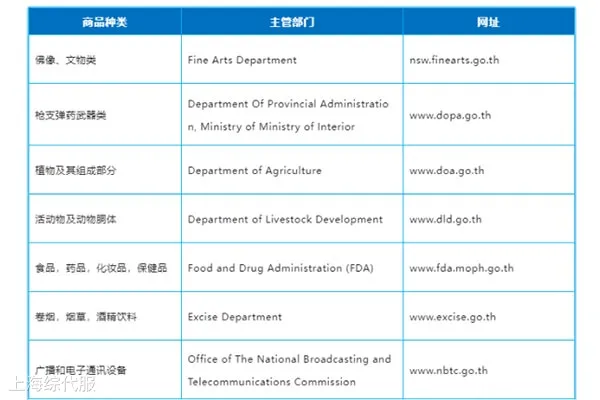Recently, a number of Chinese-owned companies reflected in Thailand.Transitional tradeIn order to prevent and reduce commercial losses, we strongly recommend that Chinese enterprises read the relevant regulations through the Thai Customs and other relevant department websites before carrying out trade activities.
According to the information on the Thai Customs website, goods prohibited from import and export in Thailand include but are not limited to: drugs, obscene goods, counterfeit trademarks and intellectual property infringement goods, counterfeit banknotes and protected animals and endangered wildlife, etc. In addition, some goods are subject to special controls and require licensing from the competent authorities, which include but are not limited to specific industrial products, agricultural products, chemicals, food and beverages.

Transfer trade is also referred to as transfer trade or re-export trade, refers to the purchase and sale of imported and exported goods is not directly carried out between the producing country and the consumer country, but through the trade carried out by the third country. This trade for the transfer country is transfer trade. The transaction goods can be transported by the exporter to the third country, in the third country without processing (such as replacement packaging, selection, arrangement, etc. is not considered processing) after the consumption to the consumer country; can also not be transported directly from the producing country to the consumer country through the third country, but there is no trade relationship between the producing country and the consumer country, but the transfer country separately with the producer and consumer country.
However, it should be noted that not all products are suitable for transfer trade. Whether or not export products require transfer trade, generally requires a comprehensive consideration of several factors, such as whether quotas, goods value, anti-dumping tax rates, product categories and the increased cost of transfer shipping, etc. In some cases, such as products encountering anti-dumping problems, transfer shipping can avoid taxes for foreign importers.
In general, in order to avoid unnecessary trouble and losses in the process of transfer trade, enterprises should try to understand and abide by relevant local laws and regulations before carrying out trading activities, while also making a prudent decision whether to trade with transfer according to the characteristics of their products and market conditions.


 Follow customer service WeChat
Follow customer service WeChat